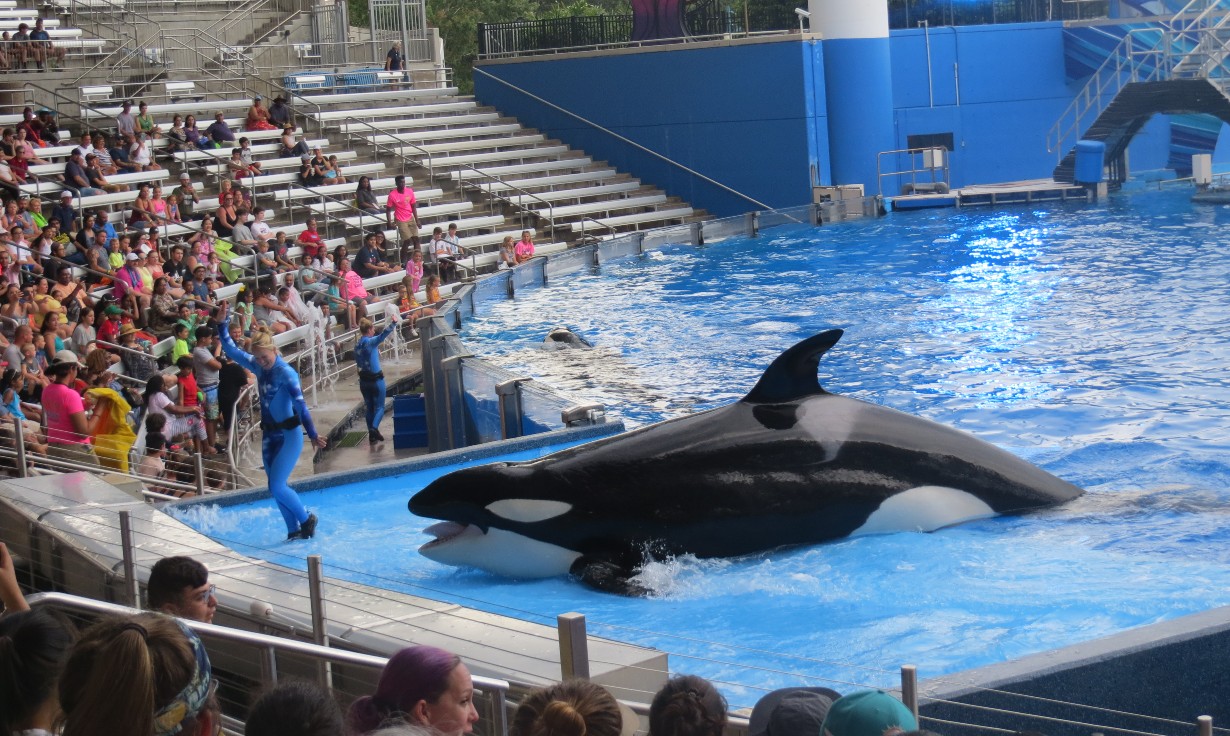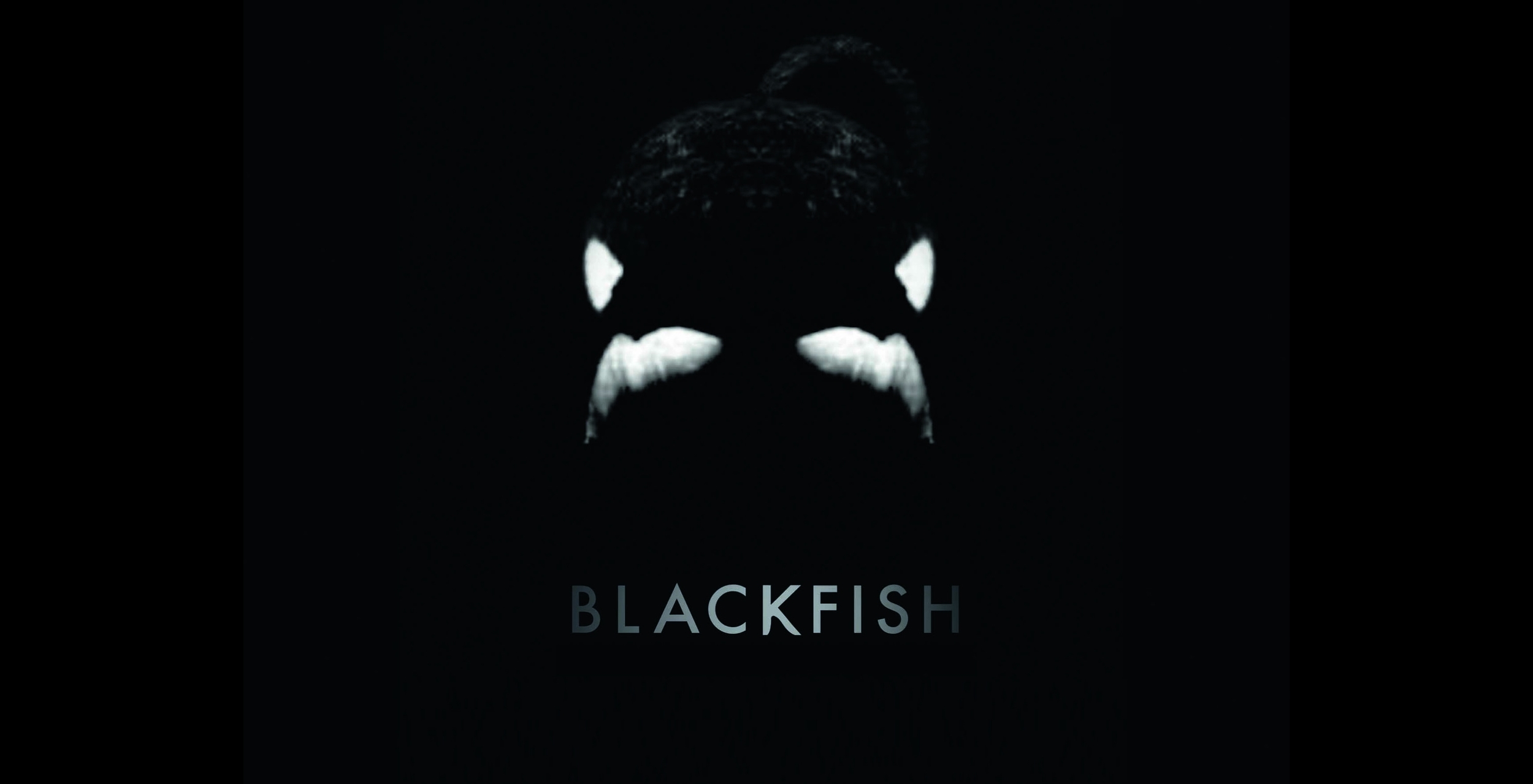New research from the University of Stirling shows the power of nature documentaries to change public attitudes, and suggests zoos and aquaria must engage with debates around conservation and animal welfare.
The research, conducted by Dr Laura Thomas-Walters, with Dr Diogo Verissimo and Laure Boissat from the University of Oxford, found that the documentary Blackfish, about performing killer whale Tilikum, directly led to a fall in market share price for marine park Seaworld in Florida.

An orca performing at SeaWorld in 2018 CREDIT Laure Boissat
Released in 2013, Blackfish tells the story of orca Tilikum, which killed three people whilst in captivity, the last victim being SeaWorld’s senior trainer, Dawn Brancheau, in February 2010.
Following the release of the film, SeaWorld suffered a drop in market share, as attendance and revenue declined, and subsequently abandoned its orca breeding programme.
The researchers interviewed stakeholders including zoo and aquaria community representatives, marine park employees, animal welfare organisation employees, Blackfish crew and marine science and narrative experts, asking them to rank possible reasons for the marine park’s fall from grace.
They found evidence that the documentary led to negative publicity for SeaWorld and changed how people viewed orca captivity.
Writing in a recent paper, Dr Thomas-Walter, a postdoctoral research fellow in Biological and Environmental Sciences at the University of Stirling, said: “We found three main reasons why Blackfish had such an impact: the support from major distribution channels like CNN and Netflix that lent it credibility and brought it to large audiences; the emotional impact of its content, and the timing of its release. A confluence of factors, fuelled by animal welfare and rights activism, enabled the documentary to resonate with a wide public.

Postdoctoral research fellow in Biological and Environmental Sciences
Blackfish demonstrates the need for zoos and aquaria to track public attitudes and make a genuine effort to engage with trade-offs between financial sustainability through entertainment and a commitment to conservation and welfare.
“Further, SeaWorld lost credibility by dismissing the documentary as propaganda, and their response was regarded as slow and inadequate.”
Contributing author Dr Diogo Verissimo, research fellow in zoology at the University of Oxford, said: “When exposé documentaries like Blackfish or Seaspiracy come out, there are often big claims about their impact, but we actually know very little about how influential documentaries are, as there are very few studies into their impacts. This is problematic as it means we have to rely on guesswork when it comes to making future documentaries as impactful as possible.”
The research also gives an insight into how zoos and aquaria might mitigate changing public attitudes towards animal captivity and conservation.
Dr Thomas-Walters said: “Blackfish demonstrates the need for zoos and aquaria to track public attitudes and make a genuine effort to engage with trade-offs between financial sustainability through entertainment and a commitment to conservation and welfare.
“For example, zoos and aquaria could develop a set of publicly available guidelines justifying their choice in the species they keep, breed, and display. This may mean no longer keeping species, such as orcas, when there is evidence that their welfare needs cannot be met in captivity. This could require finding new ways to generate revenue, especially in the aftermath of COVID-19, which has imposed park closures in many countries worldwide.
“The UK is a nation of animal lovers, and Blackfish shows what happens when people feel they’ve been deceived. Many zoos, like the London Zoological Society, do incredible conservation work, but all zoos have to make difficult choices about the rights and welfare of the animals they keep in captivity. Transparency is key.”
Laure Boissat of the School of Geography and the Environment at the University of Oxford, goes further, and questions whether there is still a role for zoos at all in modern society. She said: “Zoos and aquaria have traditionally justified their existence through having an important educational role. However, today, as wildlife documentaries are much more accessible and informative, who still needs to go see animals forced to spend their whole lives in a confined environment? Animal-based shows are cruel and outdated. We should rather focus our attention on in-situ conservation.”
The Blackfish research is detailed in the paper ‘Nature documentaries as catalysts for change: Mapping out the ‘Blackfish Effect’, published in People and Nature.

